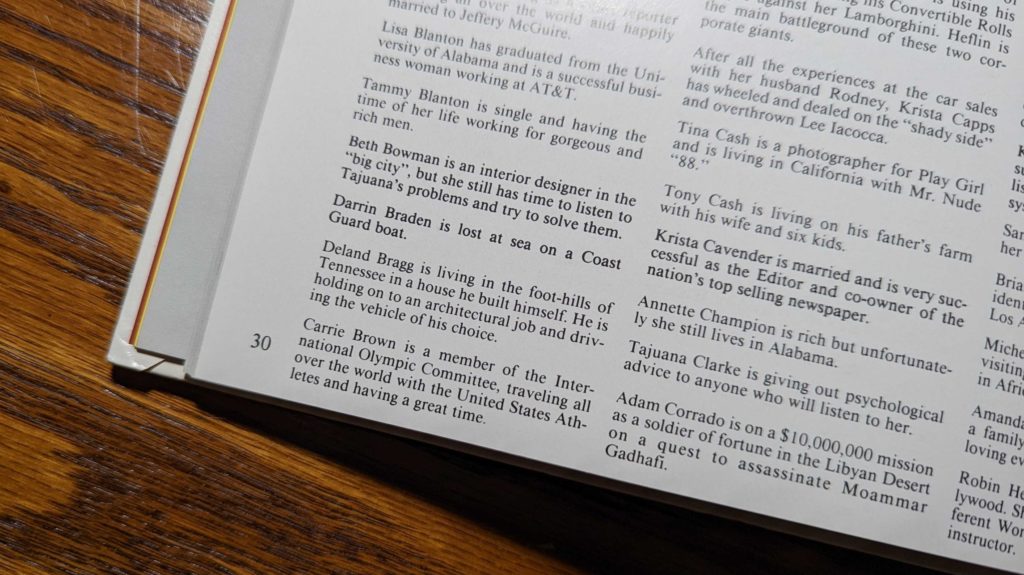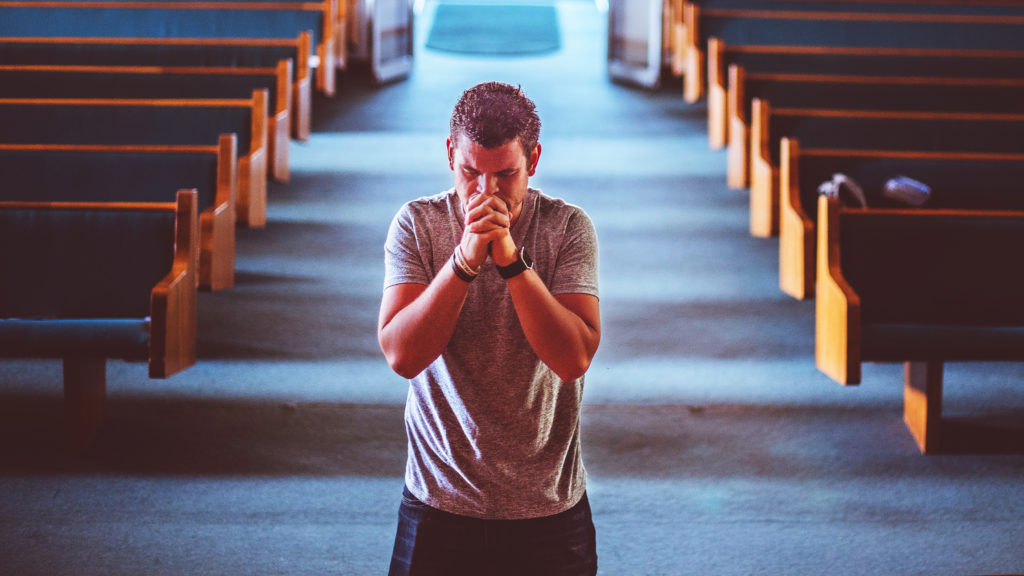By Editor-elect Jennifer Davis Rash
The books needed a purpose again. They had been boxed up for too many months and either needed to find residence on a shelf in my office or find a new owner. They weren’t doing anyone any good hidden away from the world.
I don’t remember what motivated me that particular day to clean out my books and slice open the tape on the box, but that’s what I did. I organized the books by categories and determined to start reading through them one at a time, then pass them along to others.
But where to start?
I settled on the leadership category, the discipleship category and the relationship category — all areas that continuously need polishing in my life.
As I glanced over the titles, my eyes noticed a handful of books focused on balancing life and creating margin.
Margin — the space between ourselves and our limits.
I remember understanding that word for the first time about 10 years ago when a colleague pointed out I had none. He wasn’t the first nor the last to note this about me, but he was the first I remember using this particular word.
I didn’t really worry about it at the time, but life — as life tends to do — exposed my true deficit of margin and recently I’ve landed in a season where margin is vital.
Toothpick world
When we leave no space in the area between ourselves and our limits, then every day can feel like it is out of control and the more we try to gain control of our lives, the more we lose the battle.
And don’t even get me started on how the toothpick world in which we live comes crumbling down the minute one thing doesn’t line up in order.
As I reflected on my personal battle with margin that day, I focused on the titles trying to decide which book to pull off the shelf.
When I saw one simply titled “Margin,” that seemed like the best place to start. I pulled it out of the lineup, laid it on top of the other books and within minutes forgot about it.
Reading, learning
But that book wouldn’t be invisible for long.
A few weeks later in a conversation with a group of friends attempting to navigate their own margin struggles, at least three people suggested I read Richard A. Swenson’s book, “Margin: Restoring Emotional, Physical, Financial, and Time Reserves to Overloaded Lives.”
I made a note to get the book and even started looking up where to buy it when it hit me — there was a book with the title “Margin” already pulled out on my shelf ready to read. Sure enough, it was the same book.
And when I thought through why I had the book but had never read it before, I realized I had actually purchased the book in the mid-1990s right out of college.
I don’t remember exactly why I purchased it, but it made me realize that despite many years of ignoring the need for margin my quest for it has been a 20-year journey.
Swenson says most people don’t realize their need for margin nor the fact they have eliminated it in their lives. We are working through pain, overload, stress and frustration, not realizing we are furthering the difficulties the longer we fail to create space. And we are hurting our relationships to self, others and God in the process.
Problems one at a time are perhaps manageable, he says, but “they just won’t stand in line. Instead they grow from problem pile into problem mountain and then all fall on us at the same time.”
—
Rashional Extras — Balancing work, life
By Michael Hyatt
Balance is not the same as rest. If we think that attaining balance means finally getting a much-needed break, then we’re missing something important. It’s not about rest, though it does include it.
Balance is about distributing demands so we can stay on track. And sometimes that takes a lot of work. If that’s where you’re at right now, don’t be discouraged. It’s just part of the challenge.
Balance is dynamic. “Life is like riding a bicycle,” Albert Einstein said. “In order to keep your balance, you must keep moving.”
We’ve all experienced this. The slower you go, the more trouble it is to keep your bike up.
Momentum helps us stay on course. It’s the same for corrections and adjustments we make along the way.
Balance requires tweaking our schedule, task lists and more. If you have it right one week, it still requires attention the next week.
Balance is intentional. Our bodies are programed to stay upright, but it takes a bit more focus when it comes to the complex responsibilities and relationships that make up our lives.
We have to make purposeful decisions and actions if we want balance. It’s not accidental. Those decisions and actions will look different for each of us, but they’re essential for all of us just the same.
Balance isn’t easy, fast or always fun. It requires constant movement, constant attention.
Excerpt from “What No One Ever Told You About Work-Life Balance: How We Get It Wrong and What to Do About It” at www.michaelhyatt.com
—
Dealing with busyness, clutter
Busyness and clutter are both potential distractions in my life at any given time.
I’ve worked to create a lot of margin by eliminating too much busyness. Scaling back on many of the commitments I had helps me focus on “being” rather than “doing.”
A part of obtaining more margin also means eliminating clutter, specifically stuff in my house.
Be it hobbies I’ve tried, junk I’m holding on to or even books I’ll never read again; it’s important to create margin by eliminating material temptations.
Part of creating margin has been a spiritual walk with the Lord. It’s been spiritual in that I’m not able to do what He leads me to do if I don’t make room for Him. He’s called me to remove things that were keeping me busy — things that prevented me from hearing His voice because I was afraid to let go of these idols and hear Him deal with my deepest hurts.
Chaplain Mike Chitwood
Montgomery, Ala.
—
“It comes the very moment you wake up each morning. All your wishes and hopes for the day rush at you like wild animals. And the first job each morning consists simply in shoving them all back; in listening to that other voice, taking that other point of view, letting that other larger, stronger, quieter life come flowing in. And so on, all day. Standing back from all your natural fussings and frettings; coming in out of the wind.”
C.S. Lewis
“Mere Christianity”
—
Jesus did not live by a checklist of priorities, balancing His time in prayer with His time in the Scriptures, His recreation time with His family time, His time at work with His time at home, His secular time from His religious time. In the kingdom of God things are much simpler for there is only One priority — Jesus.
When this one thing, which gives ultimate meaning to life, is embraced, everything is changed, life is instantly and effortlessly prioritized — all things become new and balanced.
To know Him is to know life in perfect balance. When Christ is truly known, all things are instantly prioritized, and, from an eternal perspective, take on their true value.
Excerpt from “The Myth of a Balanced Christian Life” by Michael Clark and George Davis (www.awildernessvoice.com/Balanced.html)
—
Overload vs. margin
Overload is not having time to finish the book you’re reading on stress.
Margin is having time to read it twice.
Overload is fatigue.
Margin is energy.
Overload is red ink.
Margin is black ink.
Overload is hurry.
Margin is calm.
Overload is anxiety.
Margin is security.
Overload is the disease.
Margin is the cure.
An excerpt from the book “Margin: Restoring Emotional, Physical, Financial and Time Reserves To Overloaded Lives” by Richard A. Swenson, M.D.
—
I like missionary martyr Jim Elliot’s quote “Wherever you are, be all there.”
Stephen Hall, associate pastor, NorthPark Baptist Church, Trussville






Share with others: